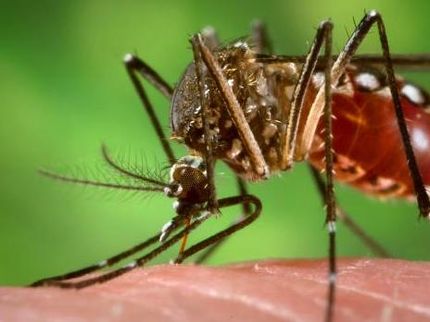Scientists ID a protein that splices and dices genes
A novel finding by teams from the National Cancer Institute, The University of Texas Health Science Center at San Antonio and the University of Toronto, offers a clue as to how genes can have what you might call multiple personalities. The discovery reveals that the protein MRG15, which previously had been known to affect cell growth and aging, also directs the gene-splicing machinery. Olivia Pereira-Smith, Ph.D., a professor in the Department of Cellular and structural biology and the Sam and Ann Barshop Institute for longevity and Aging Studies at the UT Health Science Center San Antonio, has studied the function of MRG15 for more than 10 years.
As people or animals age, this gene-splicing machinery can go awry, producing nonsense proteins rather than the proper ones. These aberrant proteins can damage cells, possibly leading to cancer or other diseases of aging. The finding thus has potential implications for therapies to treat both cancer and aging, a Texas researcher said.
The Science paper's lead author is Reini F. Luco, Ph.D., a fellow in the laboratory of senior author Dr. Tom Misteli, Ph.D., at the National Cancer Institute (NCI). Other co-authors include Kaoru Tominaga, Ph.D., from the UT Health Science Center, and Benjamin J. Benclowe, Ph.D., and Qun S. Pan, Ph.D., from the University of Toronto.
"We've known for three or four years, from other analyses, that this protein was also involved in splicing, but we needed the expertise of Dr. Misteli's lab," Dr. Smith said. "Dr. Luco led the splicing studies on this project."
Dr. Tominaga, a faculty member of the Department of Cellular and Structural Biology and the Barshop Institute in San Antonio, said it may be possible to design cancer drugs to regulate MRG15's activity.
Other news from the department science

Get the life science industry in your inbox
By submitting this form you agree that LUMITOS AG will send you the newsletter(s) selected above by email. Your data will not be passed on to third parties. Your data will be stored and processed in accordance with our data protection regulations. LUMITOS may contact you by email for the purpose of advertising or market and opinion surveys. You can revoke your consent at any time without giving reasons to LUMITOS AG, Ernst-Augustin-Str. 2, 12489 Berlin, Germany or by e-mail at revoke@lumitos.com with effect for the future. In addition, each email contains a link to unsubscribe from the corresponding newsletter.
Most read news
More news from our other portals
Last viewed contents


















































